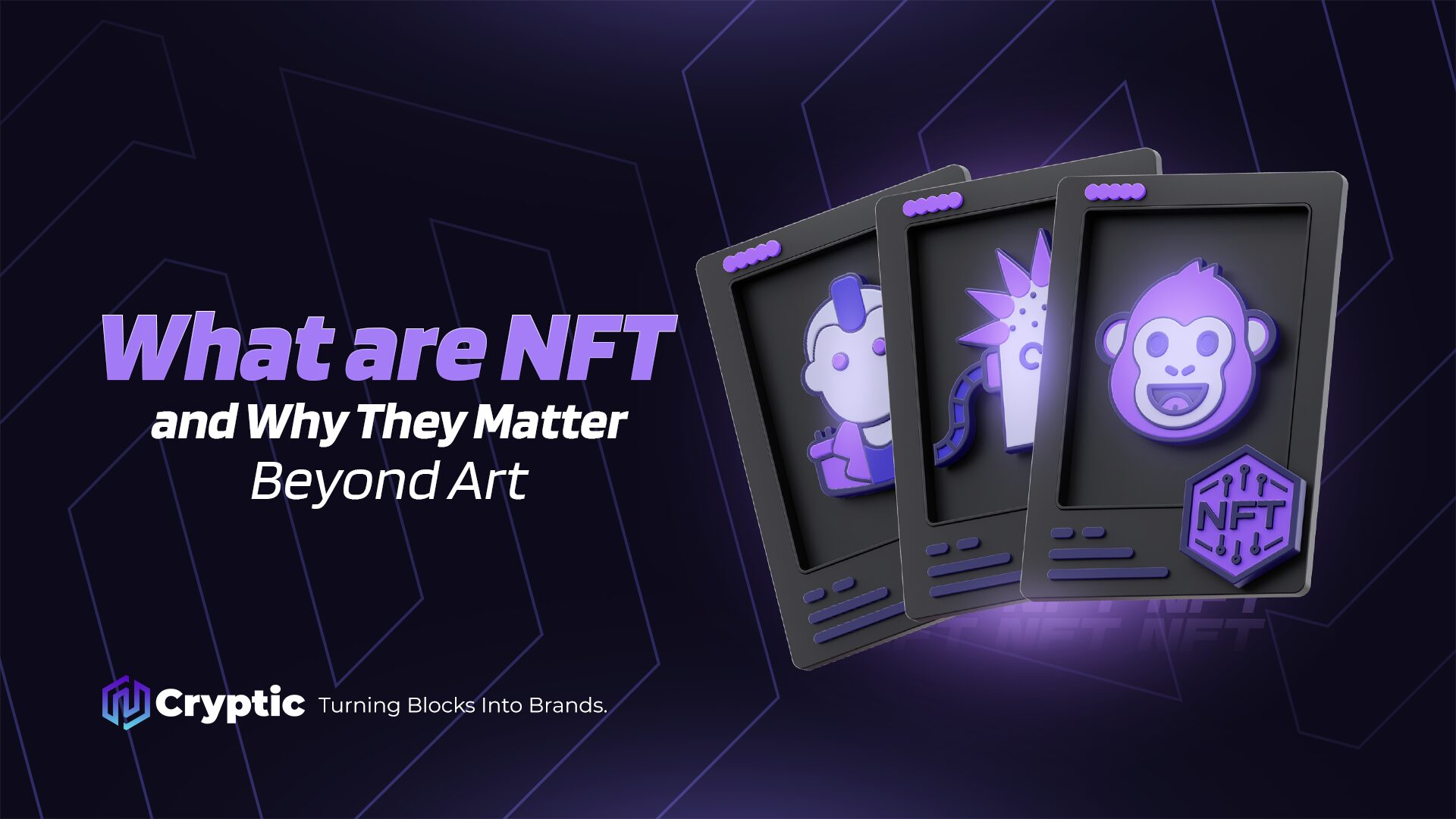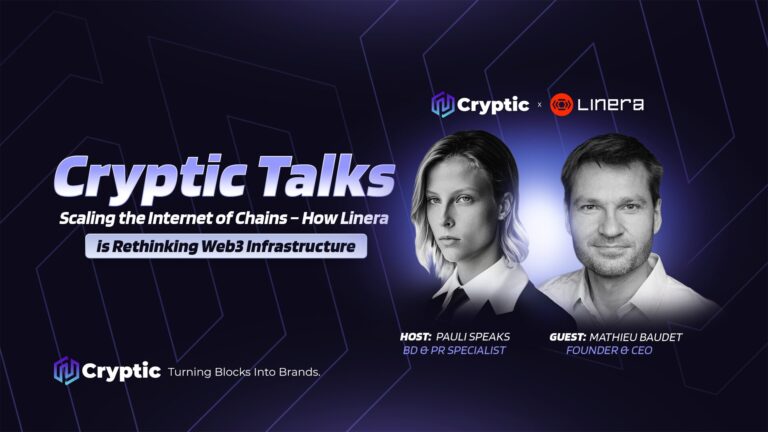From credentials to identity, NFTs are reshaping how we prove ownership and trust in the digital world.

NFTs, or Non-Fungible Tokens, are unique digital assets recorded on a blockchain. Unlike cryptocurrencies such as Bitcoin, which are interchangeable, each NFT represents something one-of-a-kind and authentic. When you purchase or own an NFT, you hold a unique asset with a digital certificate that proves its authenticity and cannot be altered.
While NFTs are often associated with digital art and collectibles, their applications go far beyond that. They have the potential to transform a wide range of industries, especially those that rely heavily on trust, authenticity, and verification.
In education, for example, diplomas and certificates can be issued as NFTs, ensuring they cannot be forged and can be verified instantly from anywhere in the world. In digital identity, NFTs can be used to create secure, immutable online profiles, allowing individuals to control and verify their own information without relying on centralized platforms.
NFTs are also being explored in fields such as real estate, event ticketing, and loyalty programs, providing greater transparency and security in digital transactions. In short, NFTs are not just a passing trend in the art world, they are a powerful tool that solves real-world problems and opens new possibilities across global markets.
NFTs in Education: Certificates, Diplomas, and Digital Achievements
NFTs are opening new frontiers in the world of education, especially when it comes to verifying academic achievements like diplomas and certificates. Thanks to blockchain technology, educational institutions can now issue secure, tamper-proof credentials that can be verified from anywhere, at any time.
Imagine completing an online course and receiving an NFT instead of a traditional certificate. That NFT would be permanently recorded on the blockchain, making it impossible to alter or forge. Any employer or institution could easily verify your accomplishment with a simple link, without needing to contact the original school.
Globally, many universities and learning platforms are exploring NFT-based diplomas. These digital credentials offer several key benefits:
- Protection against fraud
- Global accessibility
- Instant verification
- Full control by the individual
Instead of requesting paper copies or emailing PDFs, learners can store all their academic records in one secure digital wallet. These can include micro-credentials, skill-based certificates, and even badges for attending workshops or conferences—paving the way for a more streamlined, secure, and transparent educational ecosystem worldwide.
Your Digital Identity with NFTs: A New Kind of Online ID
As our online lives expand, the need for a secure, verifiable digital identity becomes more urgent. NFTs can help fill that gap by acting as a decentralized form of digital ID, think of it as your “online passport” or a digital ID card that’s uniquely yours.
With NFT-based digital identities, users can maintain full control over their personal information. Instead of creating different usernames and passwords for every service, a single NFT can grant access across platforms, making authentication both safer and more convenient.
This digital identity could also include your resume, certifications, and history of participation in online communities or events making it a living profile that evolves with your achievements.
Some global examples of this in action include:
- Ethereum Name Service (ENS): allows you to create a unique, readable blockchain name (like yourname.eth) linked to your wallet and identity
- POAPs (Proof of Attendance Protocol): NFTs that prove your participation in events, building a record of your digital journey
With NFT-based identity systems, users can enjoy greater privacy, eliminate intermediaries, and benefit from a trusted, user-centric experience online.
How to Start Exploring NFTs in Education and Digital Identity
Now that you understand the potential of NFTs in education and digital identity, let’s explore how you can begin interacting with these technologies without needing to be a blockchain expert.
1. Set Up a Digital Wallet (e.g., MetaMask)
The first step is to create a digital wallet, which will allow you to store and manage your NFTs securely. One of the most widely used options is MetaMask.
Here’s how to get started:
- Download MetaMask as a browser extension or mobile app
- Set up your wallet and store your recovery phrase in a safe place
- You’re now ready to receive, store, and manage NFTs across different platforms
2. Explore NFT-Based Certificates and Credentials
Several global platforms are already exploring the use of NFTs for issuing educational certificates:
- Coursera and Udemy: Popular online learning platforms used by millions of students worldwide. Both are increasingly integrating blockchain features for issuing verifiable digital credentials.
- edX: Created by Harvard and MIT, edX is a global platform offering university-level courses and is researching the use of NFTs for secure digital certificates.
- LinkedIn Learning: While not yet using NFTs, it offers professional certificates that could be enhanced with blockchain-based verification in the near future.
These platforms represent a shift toward globally recognized, transparent, and easily verifiable credentials.
3. Protect Your Digital Identity Responsibly
Your digital identity is valuable, and protecting it should be a priority:
- Always use two-factor authentication (2FA) for added security
- Never share your private keys or recovery phrases
- Only connect your digital wallet to platforms you trust and have researched
By following these steps, you can navigate the world of NFTs safely and confidently.
4. Trusted Platforms to Explore
As you begin your journey, consider exploring these trusted NFT-related platforms:
- OpenSea: One of the largest NFT marketplaces, with a wide range of NFT types including education-related ones
- Teachable and Skillshare: Online learning platforms that could integrate NFT credentials in the future
- Ethereum Name Service (ENS): A tool to establish your blockchain-based identity, like a personalized domain name for Web3
These tools and platforms can help you better understand and participate in this growing ecosystem.
Final Thoughts
NFTs are more than just digital artwork, they’re a foundation for a new kind of digital trust. Whether you’re pursuing online education, building your digital resume, or managing your identity online, NFTs can help you do it more securely and transparently.
By taking a few simple steps, like setting up a wallet, exploring trusted platforms, and understanding your rights you can join the next wave of digital innovation and position yourself at the forefront of a more open and verified internet.



